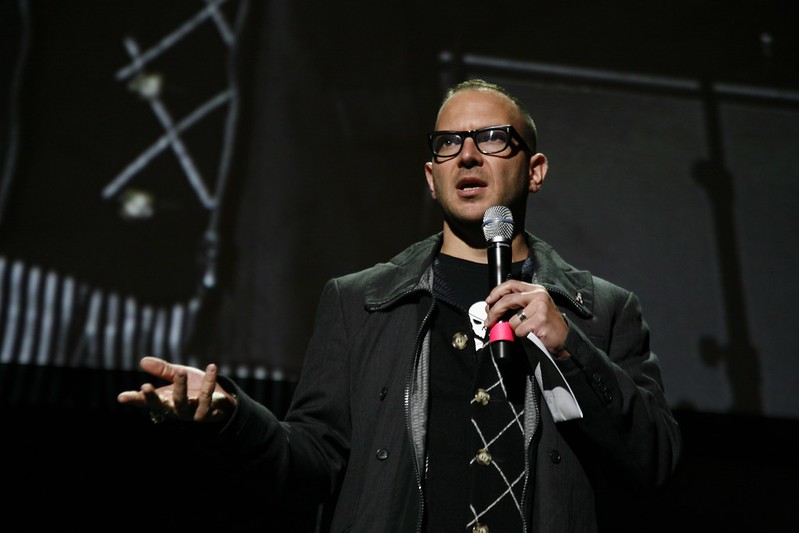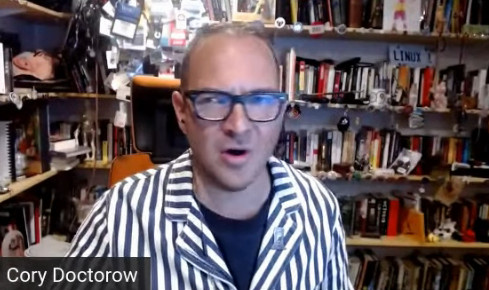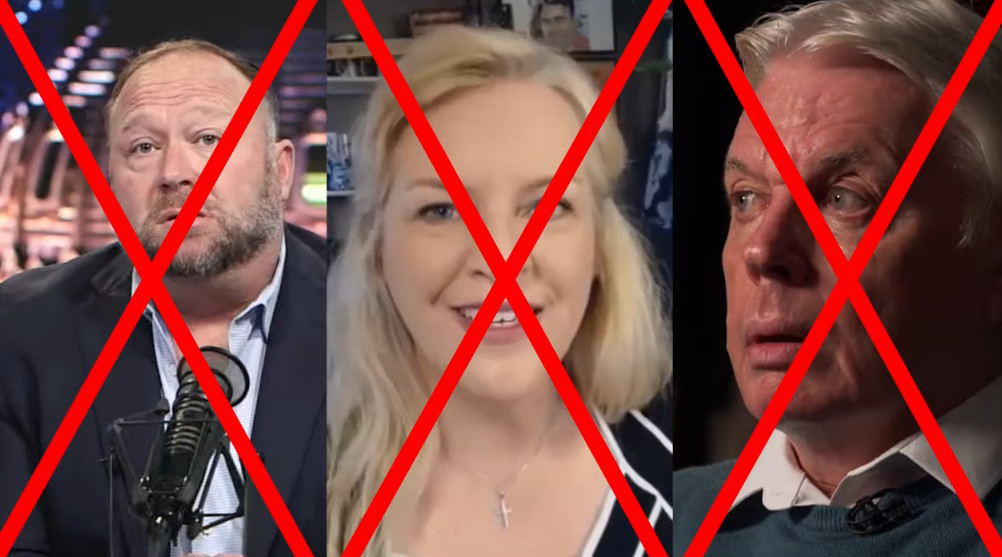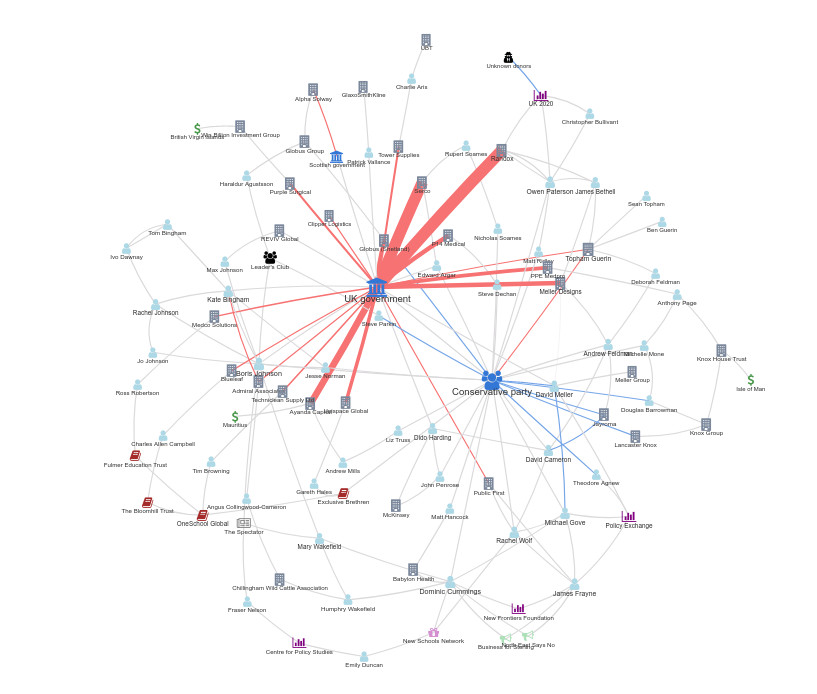
Today's Twitter threads (a Twitter thread).
Inside: Microchip "dark matter"; Reset; Rights of Nature and legal standing; Broadband wins the 2020 election; and more!
Archived at: pluralistic.net/2020/11/10/dar…
#Pluralistic
1/
Inside: Microchip "dark matter"; Reset; Rights of Nature and legal standing; Broadband wins the 2020 election; and more!
Archived at: pluralistic.net/2020/11/10/dar…
#Pluralistic
1/

I'm on a Texas Book Festival panel this Thursday:
Cyberterrorists, Post-Apocalyptic Landscapes, and Were-Pomeranians
texasbookfestival.org/events/cyberte…
2/
Cyberterrorists, Post-Apocalyptic Landscapes, and Were-Pomeranians
texasbookfestival.org/events/cyberte…
2/

Microchip "dark matter": An unpatchable, ecosystem-shattering security break.
3/
https://twitter.com/doctorow/status/1325970696372039682
3/

Rights of Nature and legal standing: Give precedence to humans and nature, not corporations.
5/
https://twitter.com/doctorow/status/1326170203978305538
5/

Broadband wins the 2020 election: First, Denver and Chicago - now, the nation!
6/
https://twitter.com/doctorow/status/1326182389333196801
6/

#15yrsago Agent to the Stars: comic sf about an alien race’s Hollywood agent scalzi.com/agent/
#10yrsago White paper on 3D printing and the law: the coming copyfight publicknowledge.org/blog/it-will-b…
7/
#10yrsago White paper on 3D printing and the law: the coming copyfight publicknowledge.org/blog/it-will-b…
7/

#5yrsago All smart TVs are watching you back, but Vizio’s spyware never blinks propublica.org/article/own-a-…
#5yrsago Gallery of the Soviet Union’s most desirable personal computers rbth.com/multimedia/pic…
8/
#5yrsago Gallery of the Soviet Union’s most desirable personal computers rbth.com/multimedia/pic…
8/

#1yrago Amazon spent a fortune to block a socialist candidate’s re-election to Seattle city council; she won anyway theguardian.com/us-news/2019/n…
9/
9/

Yesterday's threads: Boundless Realms; Student data breaches vastly underreported; UK corporate registrar bans code-injection; Someone Comes to Town Part 22; and more!
10/
https://twitter.com/doctorow/status/1325839303092547602
10/

My latest novel is Attack Surface, a sequel to my bestselling Little Brother books. @washingtonpost called it "a political cyberthriller, vigorous, bold and savvy about the limits of revolution and resistance."
Get signed books from @darkdel: darkdel.com/store/p1840/Av…
11/
Get signed books from @darkdel: darkdel.com/store/p1840/Av…
11/
I have a (free) new book out! "How to Destroy Surveillance Capitalism" is an anti-monopolist critique of Big Tech that connects the rise of conspiratorial thinking to the rise of tech monopolies and proposes a way to deal with both:
onezero.medium.com/how-to-destroy…
12/
onezero.medium.com/how-to-destroy…
12/
My ebooks and audiobooks (from @torbooks, @HoZ_Books, @mcsweeneys, and others) are for sale all over the net, but I sell 'em too, and when you buy 'em from me, I earn twice as much and you get books with no DRM and no license "agreements."
craphound.com/shop/
13/
craphound.com/shop/
13/

Upcoming appearances:
* Cyberterrorists, Post-Apocalyptic Landscapes, and Were-Pomeranians/Texas Book Festival, Nov 12, texasbookfestival.org/events/cyberte…
* Let's Talk About Influence/Designthinkers, Nov 16, designthinkers.com/week-2/strateg…
14/
* Cyberterrorists, Post-Apocalyptic Landscapes, and Were-Pomeranians/Texas Book Festival, Nov 12, texasbookfestival.org/events/cyberte…
* Let's Talk About Influence/Designthinkers, Nov 16, designthinkers.com/week-2/strateg…
14/

Recent appearances:
* Allen School Distinguished Lecture "Early Onset Oppenheimers"
* Author Stories Podcast
* The Gould Standard:
glenngould.ca/thegouldstanda…
15/
* Allen School Distinguished Lecture "Early Onset Oppenheimers"
* Author Stories Podcast
* The Gould Standard:
glenngould.ca/thegouldstanda…
15/

My first picture book is out! It's called Poesy the Monster Slayer and it's an epic tale of bedtime-refusal, toy-hacking and monster-hunting, illustrated by Matt Rockefeller. It's the monster book I dreamt of reading to my own daughter.
pluralistic.net/2020/07/14/poe…
16/
pluralistic.net/2020/07/14/poe…
16/

You can also follow these posts as a daily blog at pluralistic.net: no ads, trackers, or data-collection!
Here's today's edition: pluralistic.net/2020/11/10/dar…
17/
Here's today's edition: pluralistic.net/2020/11/10/dar…
17/
If you prefer a newsletter, subscribe to the plura-list, which is also ad- and tracker-free, and is utterly unadorned save a single daily emoji. Today's is "💼". Suggestions solicited for future emojis!
Subscribe here: pluralistic.net/plura-list
18/
Subscribe here: pluralistic.net/plura-list
18/
Are you trying to wean yourself off Big Tech? Follow these threads on the #fediverse at @pluralistic@mamot.fr.
Here's today's edition: mamot.fr/@pluralistic/1…
19/
Here's today's edition: mamot.fr/@pluralistic/1…
19/
• • •
Missing some Tweet in this thread? You can try to
force a refresh














